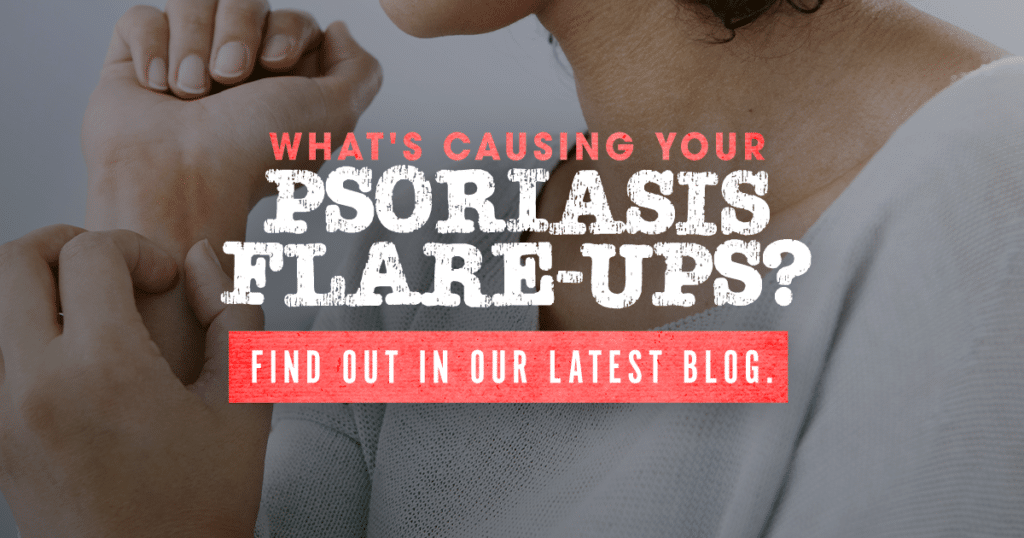Does your psoriasis flare up for no rhyme or reason? What if I told you that behind almost every flare-up are triggers that are causing it? Don’t believe me? Keep reading.
Psoriasis is a skin condition that speeds up the life cycle of skin cells in days versus weeks. The scales build up quickly on the surface of the skin, causing red, scaly patches that can itch and be painful at times. Plaque psoriasis is the most common form of psoriasis, and can be found on the knees, elbows, lower back, scalp, and other places
Finding the Triggers
Psoriasis, like other autoimmune diseases has periods where symptoms become better, or worse. The worsening of symptoms is called a flareup. Flareups can be triggered by common everyday things, so finding what they are, is not always set out before you in black and white. The American Academy of Dermatology has put together a chart of common triggers to use as a guide. We have the highlights below:
| Signs this triggers your psoriasis | Trigger | What you can do |
| You have a flareup after a stressful event. | Stress | Find ways to manage your stress, and stick with it, even when you are feeling ok. Yoga, meditation, and support groups are a few ways. Take deep breaths and exhale slowly when you are feeling stressed. |
| You have a flare up 10-14 days near or on the same spot as injury. | Injury to skin-Shaving, bug bites, cuts, scrapes, tattoos, sunburn, etc. | Use bug repellant and sunblock when outdoors and treat any cuts immediately. If you have an itch, treat the itch, and avoid scratching. It is best to avoid getting tattoos if you have psoriasis. Use a moisturizer, then shaving gel before you shave to prevent nicks. |
| Psoriasis treatment has little to no effect and you drink 2 or more drinks a day, or binge drink. | Drinking | Quit drinking or limit yourself to 1 drink a day for women, 2 for men. |
| Psoriasis can worsen with the humidity, drop in temperature, and heat. | Weather | Use a humidifier if your home feels dry. Limit showers to 10 mins and use warm water instead of hot. Cover yourself when outside in the colder weather. Moisturize daily. Site away from direct heat sources like a fireplace. |
| Flareup within 2-6 weeks after strep throat, earache, bronchitis, or another infection. | Infections | Infection treatments can lessen or clear the psoriasis, so when treatment ends, you can flare. Make sure your doctor knows any medications you are taking. |
| Flareup within 2-3 weeks after beginning a medicine. | Medication | Some medications can cause flareups like: Lithium, strong corticosteroids (if you do not taper), those that treat high blood pressure, chest pains, and some arthritis medicines. DO NOT stop taking any medications without your doctor’s recommendation. |
Armed with Knowledge
With this trusty little chart, you can begin to reduce the amount of flareups you have. Psoriasis is a chronic skin disease, but it doesn’t have to control your life. Again, the chart covers the most common triggers of psoriasis, so this is not an all-encompassing list. Keeping a daily journal can help you identify those outliers.
At IC Research, we are committed to working with patients to develop new treatment options through clinical studies.
If you, or your loved one are diagnosed with psoriasis, click HERE to learn more.
References:
https://www.psoriasis.org/about-psoriasis
https://www.aad.org/public/diseases/scaly-skin/psoriasis/what-is-psoriasis

